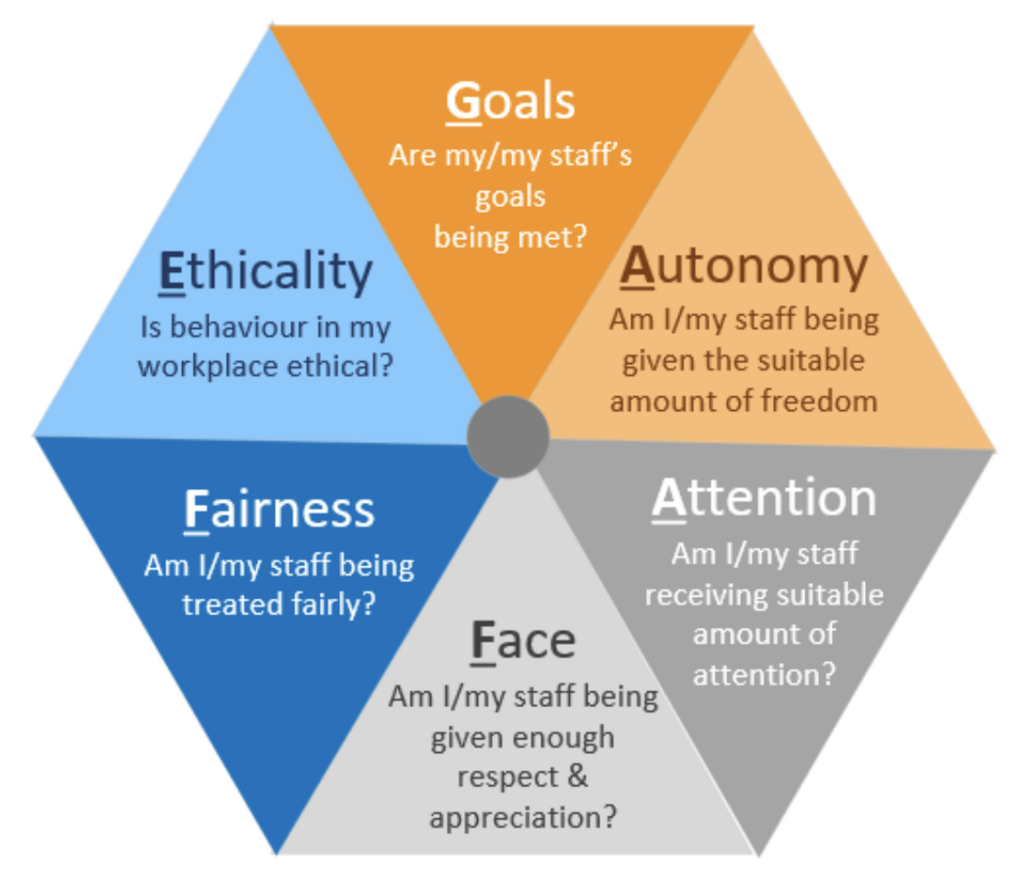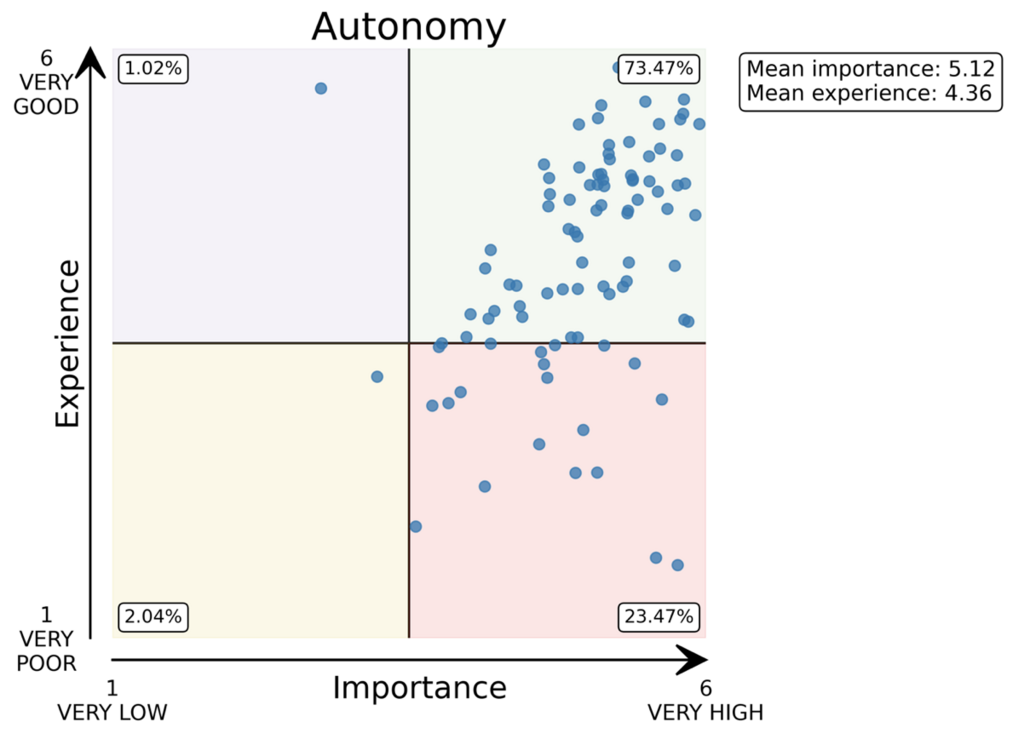
Relationships are key to success at work
- Positive relationships promote wellbeing, collaboration, psychological safety, creativity and innovation … and much more
- Problematic relations bring the opposite – conflicts, factions, exclusion, loneliness, misunderstandings, low morale etc.
How are relationships are your workplace?
It’s important to find out – RELMAP will give you the insights you need.
Relationships and rapport are affected by 6 key risks – the GAAFFE Triggers. The following questions are key:
- Goals – Are my/my staff’s goals being met?
- Autonomy–Control – Am I/my staff being given the amount of freedom or amount of direction that I/they want.
- Attention–Inattention – Am I/my staff receiving the amount of attention I /they want – not too much and not too little? Do I/they feel included or excluded?
- Face – Am I/my staff being shown the respect they want and deserve?
- Fairness – Am I/my staff being treated fairly?
- Ethicality – Is the behaviour in my workplace ethical? Am I/my staff expected to engage in any unethical behaviour?
If the answer to any of these questions is ‘yes’ or ‘somewhat’, this means there is a risk to positive working relationships and rapport.
If you don’t know or are unsure, the RELMAP will help you find out.

The focus of the Relationship Management Profiler (RELMAP)
The Relationship Management Profiler (RELMAP) explores relationships and rapport at work, with a special focus on relationships between managers and employees.
The RELMAP probes the viewpoints of two groups of people:
- Employees who have a manager with line management responsibility for them;
- Managers who have line management responsibility for others.
The first group (employees) are asked to reflect on their perceptions of a range of line management issues, covering the 6 GAAFFE Triggers.
The second group (managers) are asked to reflect on the amount of challenge they experience in fulfilling their role as a line manager.
Those who fit both categories answer both sets of questions.
Sample findings for Autonomy (one of the GAAFFE Triggers)
A recent study found the following results for Autonomy:
- Nearly everyone agreed that managing autonomy–control is important or very important (two right-hand quadrants).
- Just over 73% of employees reported having good experiences of their desired level of autonomy being met. Their ratings fall into the Flourishing quadrant (top right-hand quadrant).
- However, just over 23% felt that they do not have positive experiences. Their responses fall into the Frustrating quadrant (bottom right-hand quadrant). Note that the mean figures (to the top right of the figure below) mask this important level of detail.

Implications
- When a significant proportion of your workforce – nearly one quarter in this study – are frustrated with the amount of freedom they are given to try out new ideas or with the level of guidance received, this risks stifling innovation and limiting project success.
- Steps will need to be taken to address the concerns.
Contact us today about runnning the RELMAP at your organisation
- Request a brochure
- Request a report on a previous study
- Request a free, without obligation, discussion
- See our book Making Working Relationships Work (2024) for more insights into managing working relationships.
